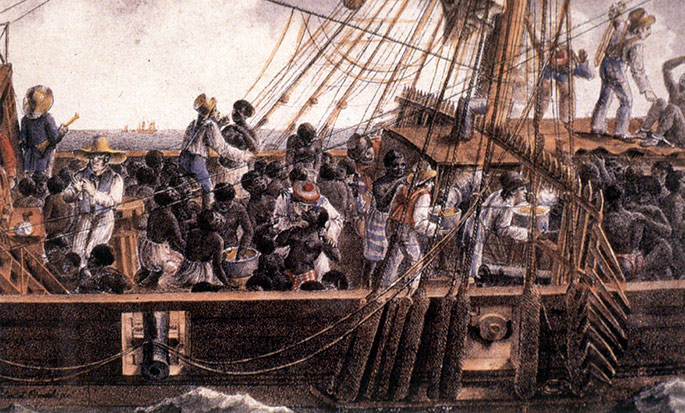Swansea copper paid the African chieftains,and profits from sugar transformed Welsh industry. Helen Morgan from Abergavenny Local History Society reports.
The transatlantic slave trade flourishing in the 17th and 18th centuries generally followed a triangular route. Ships left Britain for West Africa where they traded goods for slaves. They transported their human cargo across the Atlantic to the Americas before returning home loaded with sugar, coffee, tobacco and (later) cotton. Bristol, Liverpool and London were the main slave ports but that did not stop Welsh entrepreneurs from cashing in. Mid Wales produced coarse woollen cloth to clothe slaves in the Americas, says Professor Chris Evans. But brass and copper from the Swansea valley used for barter along the West African coast were the real pay dirt.
Two of the first Welshmen to profit from sugar produced by slaves were Henry Morgan, the privateer from Llanrumney, and John Vaughan the Carmarthan MP who arrived in Jamaica in 1674. Fifteen years later the island’s plantations had expanded five-fold. The number of slaves had grown from 2,500 in 1671 to 25,000 in 1689.
Anthony Bacon grew rich by supplying garrisons along the Senegalese coast as well as the slave trade. He then turned his focus on Merthyr Tydfil which, in 1765 was the new frontier of British industry. Coke-smelting technology was invented back in 1709, but this new technology needed a major capital investment. Profits from the slave trade made the difference and Bacon’s blast furnace at Cyfarthfa was Merthyr’s third. His industrial empire grew rapidly as he bought the Plymouth furnace in 1766, Hirwaun in 1780 and established a cannon foundry. Soon Bacon was the Government’s foremost cannon supplier.
Anti-slavery campaigns had little effect in Wales even after Sir Thomas Picton from Carmarthan went on trial in London in 1806. Reports of atrocities when he was Governor of Trinidad caused political shockwaves that led to The Act for the Abolition of the Slave Trade in 1807. But that did nothing to help the 750,000 slaves in the British sugar islands until slavery itself was outlawed in 1834. Even then, in 1835 two companies with strong Welsh links, reopened the Cobre copper mines in Cuba — beyond the reach of English law — to supply the Swansea works, using slaves hired from local owners for the hard graft until the late 1860s.
Prof Chris Evans’s talk on the Atlantic Slave Trade at the Borough Theatre on Feburary 26 starts at 7.30pm Non-members are welcome to join on the night. For details visit abergavennylocalhistory.org.uk



